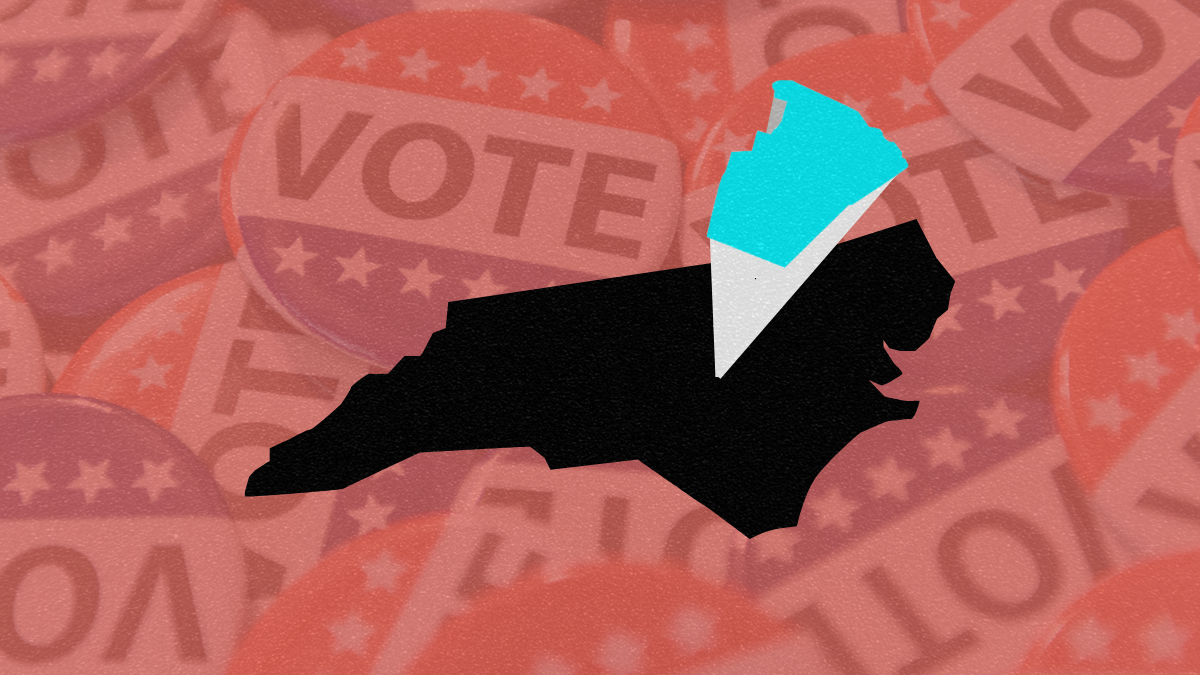Source: U.S. News & World Report
North Carolinians know how important their votes are when it comes to presidential elections because North Carolina is one of the most important battleground states in the nation.
Winning an entire state is the goal for presidential candidates, but sometimes, individual counties are what make the difference between victory and defeat. These counties can also offer clues to voting patterns among specific groups or highlight the strength or weakness of a party’s GOTV infrastructure. One such county happens to be in North Carolina, according to U.S. News & World Report.
Wake County, home to the state capital of Raleigh, is listed among the 13 most important battleground counties in this November’s election due to the size and demographics of the population.
Home to nearly 1.2 million people, Wake County is now the most populous county in the state and accounts for around 11% of North Carolina’s entire population. The county has almost doubled in population since 2000 and part of that boom has included a higher-than-the-national average number of well-educated, Democratic-voting suburbanites.
“Wake County is a microcosm of political change,” Chris Cooper, a Western Carolina University political scientist, told U.S. News. “It’s a place with massive in-migration and it’s creeping towards greater diversity.”
Wake County’s Black population (21%) is higher than the nation as a whole (14%) and is also more Asian (9% vs. 6% nationally). Wake County is significantly less Hispanic (11%) than the rest of the U.S. (19%), though. The county also has a smaller percentage of senior citizens (13%) than the rest of the state or the country (both 17%).
What really sets Wake County’s demographics apart from the rest of the state and the nation is its level of educational attainment and affluence, according to U.S. News. More than 55% of Wake County residents have at least a bachelor’s degree, far more than the state and U.S. average of 34%. The median household income is 29% higher than the national level and 46% higher than the rest of the state. The median home value in Wake County, around $380,000, is 37% higher than the national level and 64% higher than the statewide level.
Wake County used to lean Republican and voted for George W. Bush in 2000 (53-46) and 2004 (50-48), but since Barack Obama’s first presidential run in 2008, the county has shifted toward Democrats and usually by increasing margins – 14% in 2008, 14% in 2012, 20% in 2016 and 26% in 2020.
Wake County and Mecklenburg County, where Charlotte is located, have followed the pro-Democratic trendlines of many metro areas that also have high levels of college education and above-average incomes, U.S. News reported.
That gives an outsized importance to Democrats in these counties, according to experts.
“If Wake County gives Biden an underwhelming majority of votes, then it’s going to be a bad day for Democrats in North Carolina, and likely elsewhere,” Cooper said.
Even though the population has grown in Wake County and Democrats have become dominant in the Triangle and Charlotte areas, that hasn’t been enough to turn North Carolina blue in federal races. In contrast to other battleground state metro areas, such as Atlanta, the Triangle and Charlotte don’t have as large of a footprint. There are 6.3 million people in the Atlanta metro area and around 10.9 million residents in Georgia whereas the Triangle and Charlotte metro areas have a combined population of 4.3 million out of 10.8 million in the entire state. A population difference of two million people is significant.
Because the Triangle and Charlotte don’t have a population footprint like Atlanta, Republicans have been able to focus on rural and exurban areas of the state and find the votes needed to win these federal elections. The counties that make up these areas are known as “countrypolitan” counties – and they backed Trump over Biden 63% to 36% in 2020.
Michael Bitzer, a Catawba College political scientist, told U.S. News that the goal for both candidates in Wake County won’t be as much about persuading undecided voters but more about turning out as many committed supporters as possible.
“There’s a slim segment of the electorate that is movable,” Bitzer said.
Democrats will need to hold on to their recent suburban gains in counties like Wake and make sure those voters turn out in November rather than becoming apathetic, he added.





